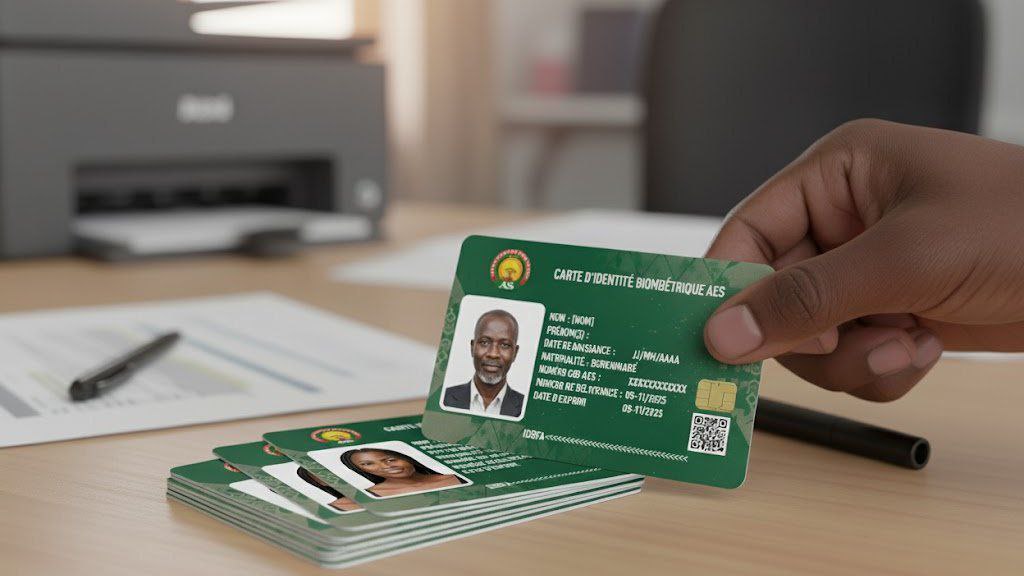
Burkina Faso Launches AES Biometric Identity Card, Strengthening Sahel Integration

Burkina Faso has taken another decisive step toward regional integration with the adoption of a new Biometric Identity Card for the Alliance of Sahel States (CIB-AES). The decree, approved by the Council of Ministers on Thursday, November 6, 2025, establishes the card as the country’s new national identity document.
The CIB-AES is part of a broader effort to harmonize identification systems across the three member states of the Confederation of Sahel States (AES), Burkina Faso, Mali, and Niger. It aligns with international standards set by the International Civil Aviation Organization (ICAO) and is designed to facilitate easier movement, administrative efficiency, and regional security.
Under the new regulation, the CIB-AES will serve as the primary national ID in Burkina Faso and will be valid for ten years from the date of issuance. The existing National Identity Cards (CNIB) will remain valid for a five-year transition period, giving citizens time to make the switch.
The move follows the recent introduction of the AES common passport, another key symbol of the bloc’s growing unity and ambition to build shared institutions. Together, these measures underscore the member states’ commitment to sovereignty, digital independence, and the creation of a cohesive Sahel identity.
For the Burkinabè government, the new card is more than a technical upgrade, it represents a statement of confidence in a collective future shaped by regional cooperation and self-determination.
READ MORE: Blue Gold Secures $140 Million to Revive Ghana’s Bogoso-Prestea Mine
About The Author
Related Articles
Asake Sets New Billboard Afrobeats Record as Chart Presence Grows
Asake has further cemented his place as one of Afrobeats’ most dominant...
ByWest Africa WeeklyJanuary 29, 2026Nigerians Lament PayPal’s Return as Old Wounds Resurface
PayPal’s reentry into Nigeria through a partnership with local fintech company Paga...
ByWest Africa WeeklyJanuary 29, 2026Tanzania Eyes Gold Sales as Aid Declines and Infrastructure Needs Grow
Tanzania is weighing plans to sell part of its gold reserves to...
ByWest Africa WeeklyJanuary 29, 2026Mali Tightens Grip on Explosives Supply With New Majority Stake
The Malian government has taken majority ownership of a civil explosives manufacturing...
ByWest Africa WeeklyJanuary 29, 2026












Leave a comment